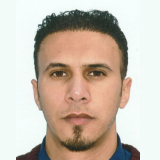START YOUR JOURNEY NOW
Overview
The aims of the Master of Science in Robotics are:
- To develop students’ interest in, knowledge and understanding of robotics and autonomous systems
- To prepare them for Ph.D. research in that area and/ or the industry workforce.
Robotics research and the development of intelligent systems continue to be one of the key priorities set by both government and industry. Interdisciplinary in scope, our Master’s in Robotics provides an ideal foundation for what today’s experts in robotics and intelligent systems need to know. Along with the chance to learn from world leaders in their fields from across the globe, our program offers hands-on activities where you will learn by designing, prototyping, and validating intelligent robotic systems. As a graduate of the Master of Science in Robotics program, you will take a leading role in the development of integrated robotics technologies and systems, both locally and internationally.
-
Mode: Full-time
-
36 credits
-
Location: On campus
Robotics is where AI meets the physical world. At MBZUAI, we are building the ‘brains' that allow machines to perceive, act, and communicate with humans in the real world. It is not just an analogy of human brain for a robot, but a constructive approach to explain the human brain from the information science. Robotics will embody the AI and lead to the artificial general intelligence in the real world. Students in robotics will study the foundation of embodied AI and become innovators in the real world, such as homes, hospitals, farms, constructions, factories, and urban mobilities.
Yoshihiko Nakamura
Department Chair of Robotics, and Professor of Robotics
Read BioMeet the faculty
National Qualifications Framework – three strands
The program learning outcomes (PLOs) are aligned with the Emirates Qualifications Framework and, as such, are divided into the following learning outcomes strands: knowledge (K), skills (S), responsibility (R).
- PLO 01: Discuss and explain concepts and key components of robotics technologies.
- PLO 02: Compare and contrast various robot sensors and their perception principles that enable a robot to analyze their environment, reason and take appropriate actions toward the given goal.
- PLO 03: Analyze and solve problems in spatial transformation, robot locomotion, kinematics, motion control, localization and mapping, navigation, and path planning.
- PLO 04: Critically appraise current research literature and conduct rigorous and situationally appropriate experiments with state-of-the-art robotic algorithms on a robotic platform.
- PLO 05: Effectively communicate robotics concepts and design decisions using a range of media/visual mediums.
- PLO 06: Function effectively in or lead a team, that creates a collaborative and inclusive environment, establishes research goals, plans tasks, and meets desired objectives.
The PLOs are mapped to the National Qualifications Framework Level Seven (7) qualification and categorized into three domains (knowledge, skill and Responsibility) as per the National Qualifications Framework set by the UAE National Qualifications Centre (NQC) and the Ministry of Higher Education and Scientific Research (MoHESR):
[wps_table style=”default”]
| PLOs | Knowledge | Skill | Responsibility |
|---|---|---|---|
| PLO 01 | K | S | – |
| PLO 02 | K | S | R |
| PLO 03 | K | – | – |
| PLO 04 | K | S | – |
| PLO 05 | – | S | – |
| PLO 06 | – | – | R |
[/wps_table]
The minimum degree requirements for the Master of Science in Robotics is 36 credits, distributed as follows:
| Number of courses | Credit hours | |
|---|---|---|
| Core | 5 | 16 |
| Electives | 2 | 8 |
| Internship | At least one internship of up to six weeks duration must be satisfactorily completed as a graduation requirement | 2 |
| Introduction to research methods | 1 | 2 |
| Research thesis | 1 | 8 |
| Total | 10 | 36 |
Core course: A required course that all students in the program must take because it teaches the essential knowledge and skills for the degree.
Elective course: A course chosen based on the student’s interest or research topic. It allows the student to explore topics outside the required core courses.
Prerequisite: A course that must be successfully completed before taking another course, because it provides the background knowledge the student needs.
Co-requisite: A course the student must take at the same time as another course, because the two subjects support each other.
Anti-requisite: A course that the student is not allowed to take if they have already taken another specific course, because the content overlaps too much.
The Master of Science in Robotics is primarily a research-based degree. The purpose of coursework is to equip students with the right skillset, so that they can successfully accomplish their research project (thesis). Students are required to take core courses as mandatory courses. They can select a minimum of two electives.
To accommodate a diverse group of students, coming from different academic backgrounds, students have been provided with flexibility in course selection. The decision on the courses to be taken will be made in consultation with students’ supervisory panel, which will comprise two or more faculty members. Essentially, the student’s supervisory panel will help design a personalized coursework plan for each individual student by looking at their prior academic track record and experience, and the planned research project.
All students must take the following core courses:| Code | Course title | Credit hours |
|---|---|---|
| AI7101 |
Machine Learning with Python
Assumed knowledge: Linear algebra, mathematical analysis, algorithms. At least intermediate programming skills are necessary. Course description: The course gives an introduction to the main topics of modern machine learning such as classification, regression, clustering, and dimensionality reduction. Each topic is accompanied by a survey of key machine learning algorithms solving the problem and is illustrated with a set of real-world examples. The primary objective of the course is to give a broad overview of major machine learning techniques. Particular attention is paid to the modern Python machine learning libraries which allow solving efficiently the problems mentioned above. |
2 |
| AI7102 |
Introduction to Deep Learning
Assumed knowledge: Basics of linear algebra, calculus, probability and statistics, and basic machine learning concepts. Proficiency in Python. Course description: This course covers key concepts and methods in deep learning. Students will begin by learning the foundational principles of deep learning, including the universal approximation theorem, strategies for modeling complex patterns using neural architectures, and the specifics of training deep networks. The course then introduces a range of deep models, including convolutional neural networks, recurrent neural networks, and transformer-based architectures. Students will gain hands-on experience in building and training deep neural networks across various domains such as computer vision, medical imaging, and natural language processing. |
2 |
| INT799 |
Master of Science Internship
Assumed knowledge: Prior to undertaking an internship, students must have successfully completed 24 credit hours. Course description: The MBZUAI Internship (up to six weeks) with industry is intended to provide the student with hands-on experience, blending practical experiences with academic learning. |
2 |
| RES799 |
Introduction to Research Methods
Course description: The course teaches research methods applicable to scientific research in general, and AI research in particular. It covers various topics including quantitative, qualitative, and mixed methods, measurement and metrics in experimental research, critical appraisal and peer review, public communication, reproducibility and open science, and ethical issues in AI research. Students will gain knowledge in selecting, evaluating, collecting and sharing data and suitable research methods to address specific research questions. After completing the course, students will have the skills to develop a full research methodology that is rigorous and ethical. |
2 |
| ROB701 |
Introduction to Robotics
Assumed knowledge: Basics of linear algebra, calculus, trigonometry, and probability and statistics. Proficiency in Python. Course description: The course covers the mathematical foundation of robotic systems and introduces students to the fundamental concepts of Robot Operating System (ROS) as one of the most popular and reliable platforms to program modern robots. It also highlights techniques to formally model and study robot kinematics, dynamics, perception, motion control, navigation, and path planning. Students will also learn the interface of different types of sensors, read and analyze their data, and apply it in various robotic applications. |
4 |
| ROB703 |
Robot Localization and Navigation
Assumed knowledge: Basics of linear algebra, calculus, and probability and statistics. Proficiency in Python and ROS/Gazebo. Prerequisite course/s: ROB701 Introduction to Robotics Course description: The course covers different topics and techniques within the context of mapping, localization, and navigation. It highlights SLAM methods using various types of filters, such as Kalman filter, Extended Kalman filter (EKF) and Particle filter. It investigates grid- and graph-based SLAM and data association. It puts in perspective map-based and reactive navigation techniques. To reinforce these concepts and methods, they are applied within Robot Operating System (ROS) through dedicated state-of-the-art ROS packages, such as the tf package, AMCL, and mapping. |
4 |
| ROB799 |
Robotics Master's Research Thesis
Course description: Master’s thesis research exposes students to an unsolved research problem, for which they are required to propose new solutions and contribute towards the body of knowledge. Students pursue an independent research study, under the guidance of a supervisory panel, for a period of 1 year. Master’s thesis research helps train graduates to pursue more advanced research in their Ph.D. degree. Further, it enables graduates to pursue an industrial project involving a research component independently. |
8 |
| ROB7101 |
Robotic Manipulation and Control
Assumed knowledge: Basics of linear algebra, calculus, and probability and statistics, Proficiency in Python, Pytorch, 3D geometry and dynamics. Course description: Manipulation is crucial for robots in fields such as logistics, manufacturing, and medical surgery, where they can perform dangerous or repetitive tasks. Effective manipulation is based on model-based control strategies, imitation learning, and reinforcement learning. Model-based control strategies include inverse kinematics for accurate positioning, feedforward control to anticipate disturbances, kinematic differential control to adjust for small, real-time changes, and dynamic control to manage forces and torques. Imitation learning enables robots to learn from human experts but may have limitations in generalization. Reinforcement learning refines skills through trial and error, optimizing behavior over time, but often requiring significant computational resources. Each approach has its strengths and limitations, and a combination of these methods is frequently used to achieve optimal performance in real-world applications. |
4 |
Master’s thesis research exposes students to an unsolved research problem, where they are required to propose new solutions and contribute towards the body of knowledge. Students pursue an independent research study, under the guidance of a supervisory panel, for a period of one (1) year.
| Code | Course title | Credit hours |
|---|---|---|
| ROB799 |
Robotics Master’s Research Thesis
Course description: Master’s thesis research exposes students to an unsolved research problem, for which they are required to propose new solutions and contribute towards the body of knowledge. Students pursue an independent research study, under the guidance of a supervisory panel, for a period of one (1) year. Master’s thesis research helps train graduates to pursue more advanced research in their Ph.D. degree. Further, it enables graduates to pursue an industrial project involving a research component independently. |
8 |
| RES799 |
Introduction to Research Methods
Course description: The course teaches research methods applicable to scientific research in general, and AI research in particular. It covers various topics including scientific methods, measurement and metrics in experimental research, critical appraisal and peer review, public communication, and ethical issues in AI research. Students will gain knowledge in selecting, evaluating, and collecting data and suitable research methods to address specific research questions. Additionally, they will learn design thinking skills to connect their research-based topic to practicality. After completing the course, students will have the skills to develop a full research methodology that is rigorous, entrepreneurial, and ethical. |
2 |
The MBZUAl internship with industry is intended to provide the student with hands-on experience, blending practical experiences with academic learning.
| Code | Course title | Credit hours |
|---|---|---|
| INT799 |
Master of Science Internship (up to six weeks)
Assumed knowledge: Prior to undertaking an internship, students must have successfully completed 24 credit hours. Course description: The MBZUAI Internship (up to six weeks) with industry is intended to provide the student with hands-on experience, blending practical experiences with academic learning. |
2 |
Students will select a minimum of two (2) elective courses, with a total of eight (8) (or more) credit hours based on interest, proposed research thesis, and career aspirations, in consultation with their supervisory panel. The elective courses available for the Master of Science in Robotics are listed below:
| Code | Course title | Credit hours |
|---|---|---|
| CBIO7101 |
Introduction to Single Cell Biology and Bioinformatics
Assumed knowledge: Programming in Python and Jupyter Notebooks. Familiarity with command line and GitHub. Basic artificial intelligence (AI)/machine learning (ML) knowledge. No biology knowledge is expected. Course description: This course provides a broad overview of bioinformatics for single cell omics technologies, a new and fast-growing family of biological assays that enables measuring the molecular contents of individual cells with very high resolution and is key to advancing precision medicine. The course starts with an accessible introduction to basic molecular biology: the cell structure, the central dogma of molecular biology, the flow of biological information in the cell, the different types of molecules in the cell, and how we can measure them. This course then introduces students to the diverse landscape of biological data, including its types and characteristics and explores the foundational principles of single-cell omics bioinformatics, encompassing key methodologies, tools, and computational workflows, with an emphasis on the development of foundation models for single cell omics data. |
4 |
| CS7201 |
Foundations of AI System Design
Assumed knowledge: A background in basic machine learning concepts, as well as general computer organization and digital design. Course description: This course examines the intersection of artificial intelligence (AI) and computer systems, focusing on how systems enable efficient AI workloads and how AI techniques enhance system performance. The course covers fundamental principles and emerging trends in system design, hardware-software co-design, resource management, and AI-driven system optimization. Through lectures, hands-on labs, and research projects, students will explore techniques for scaling AI applications, improving system efficiency, and integrating AI into traditional computing environments. By engaging with real-world case studies and cutting-edge frameworks, students will develop the skills needed to contribute to the rapidly evolving field of AI systems in both academia and industry. |
4 |
| CS7602 |
Computer and Network Security
Assumed knowledge: General understanding of mathematical principles used in computing; familiarity with how networks function and communicate; and ability to write and understand simple programs in any programming language. Course description: This course provides an overview of foundational principles and contemporary topics in information security. Students will examine system protection strategies, structural security frameworks, software resilience, and detection of security threats. The course integrates theoretical concepts with practical applications to enhance the understanding of securing complex information systems. |
4 |
| CV701 |
Human and Computer Vision
Assumed knowledge: Basics of linear algebra, calculus, and probability and statistics. Proficiency in Python. Course description: This course provides a comprehensive introduction to the basics of human visual system and color perception, image acquisition and processing, linear and nonlinear image filtering, image features description and extraction, classification and segmentation strategies. Moreover, students will be introduced to quality assessment methodologies for computer vision and image processing algorithms. |
4 |
| CV702 |
Geometry for Computer Vision
Assumed knowledge: Hands-on experience with Python and Pytorch. Prerequisite course/s: CV701 Human and Computer Vision Course description: The course provides a comprehensive introduction to the concepts, principles and methods of geometry-aware computer vision which helps in describing the shape and structure of the world. In particular, the objective of the course is to introduce the formal tools and techniques that are necessary for estimating depth, motion, disparity, volume, pose, and shapes in 3D scenes. |
4 |
| CV703 |
Visual Object Recognition and Detection
Assumed knowledge: Basics of linear algebra, calculus, and probability and statistics demonstrated through relevant coursework. Proficiency in Python and Pytorch. Prerequisite course/s: CV701 Human and Computer Vision Course description: This course provides a comprehensive overview of different concepts and methods related to visual object recognition and detection. In particular, the students will learn a large family of successful and recent state-of-the-art architectures of deep neural networks to solve the tasks of visual recognition, detection, and tracking. |
4 |
| CV707 |
Digital Twins
Assumed knowledge: Basic concepts in programming. Course description: This course provides a comprehensive introduction to digital twins. Students will learn about digital twin technology, its common applications, and benefits, how to create a digital twin for predictive analytics using sensory data fusion, and primary predictive modeling methods, and how to implement and interacts with a digital twin using different platforms. |
4 |
| CV7501 |
Selected Topics in Computer Vision
Assumed knowledge: Basics of linear algebra, calculus, and probability and statistics. Proficiency in Python. Course description: An instructor-led lecture and reading session course focused on both seminal and recent topics in computer vision. The course connects recent trends with classical research works in computer vision. The course covers both fundamental topics (e.g., visual recognition, 3D vision) as well as real-world applications of computer vision (e.g., healthcare, embodied AI, remote sensing, and earth observation). The course is conducted in the form of an instructor-led lecture followed by a reading session, where all participants actively participate in in-depth discussion. The detail reading list provided represents one instance of the course offering and may change in subsequent semesters. |
2 |
| CV7502 |
Deep Learning for Visual Computing
Assumed knowledge: Basics in linear algebra, calculus, computer vision, machine learning, and probability and statistics, as demonstrated through coursework. Proficient in Python programming and PyTorch. Prerequisite course/s: AI7102 Introduction to Deep Learning Course description: This course provides a comprehensive overview of different concepts and methods related to deep learning for visual computing. The course covers different aspects of deep learning for diverse visual computing applications, including image recognition, segmentation, object detection, image synthesis, point cloud processing. |
4 |
| DS701 |
Data Mining
Assumed knowledge: Discrete mathematics, and probability and statistics. Proficiency in Java or Python. Course description: This course is an introductory course on data mining, which is the process of discovering patterns in large data sets involving methods at the intersection of machine learning, statistics, and database systems. |
4 |
| DS702 |
Big Data Processing
Assumed knowledge: Databases. Proficiency in Java or Python. Basic knowledge of calculus, linear algebra, and probability and statistics. Course description: This course is an introductory course on big data processing, which is the process of analyzing and utilizing big data. The course involves methods at the intersection of parallel computing, machine learning, statistics, database systems, etc. |
4 |
| ENT799 |
Entrepreneurship in Action
Course description: This course provides a comprehensive introduction to entrepreneurship in the artificial intelligence (AI) era, focusing on transforming technical expertise into viable business ventures. Students will learn to identify market opportunities, validate ideas, develop prototypes, and communicate their vision effectively. The course emphasizes experiential learning through real-world applications, industry engagement, and culminates in a demo day presentation to investors and industry experts. Students will work in teams to develop and pitch AI-driven startup concepts while learning essential entrepreneurial skills, including design thinking, customer validation, storytelling, and fundraising fundamentals. |
2 |
| HC701 |
Medical Imaging: Physics and Analysis
Assumed knowledge: Familiarity with Python programming. Undergraduate course in signal processing or signals and systems. Course description: This course provides a graduate-level introduction to the principles and methods of medical imaging, with thorough grounding in the physics of the imaging problems. This course covers the fundamentals of X-ray, CT, MRI, ultrasound, and PET imaging. In addition, the course provides an overview of 3D geometry of medical images and a few classical problems in medical images analysis including classification, segmentation, registration, quantification, reconstruction, and radiomics. |
4 |
| ML701 |
Machine Learning
Assumed knowledge: Basic concepts in calculus, linear algebra, and programming. Course description: This course provides a comprehensive introduction to machine learning. It builds upon fundamental concepts in mathematics, specifically probability and statistics, linear algebra, and calculus. Students will learn about supervised and unsupervised learning, various learning algorithms, and the basics of learning theory, graphical models, and reinforcement learning. |
4 |
| ML707 |
Smart City Services and Applications
Assumed knowledge: Basic concepts in calculus, linear algebra and programming, and basic artificial intelligence (AI)/machine learning (ML) knowledge. Course description: This course comprehensively introduces using AI/ML in smart city services and applications. The course will start by reviewing basic concepts. Students will learn how to apply AI/ML to develop, design, and improve smart city services. They will be able to demonstrate an understanding of the smart city concept, applications, requirements, and system design. They will develop capabilities of integrating emerging technologies in smart city components and be able to implement them. In addition, they will gain knowledge in applying security, data analytics, internet of things (IoT), communications, and networking and work on case studies solutions for smart city infrastructures. |
4 |
| ML708 |
Trustworthy Artificial Intelligence
Assumed knowledge: Basic understanding of machine learning concepts and algorithms. Prerequisite course/s: ML701 Machine Learning or CV701 Human and Computer Vision, or NLP701 Natural Language Processing Course description: This course provides students with a comprehensive introduction to various trust-related issues in artificial intelligence and machine learning applications. Students will learn about attacks against computer systems that use machine learning and defense mechanisms to mitigate such attacks. |
4 |
| ML709 |
IoT Smart Systems, Services and Applications
Assumed knowledge: Basic concepts in calculus, linear algebra and programming, and basic artificial intelligence (AI)/machine learning (ML) knowledge. Course description: This course provides a comprehensive introduction to using AI/ML in internet of things (IoT) smart systems, services and applications. The course will start by reviewing advanced concepts. Students will learn how to apply AI/ML to develop, design and improve IoT systems and services. They will be able to demonstrate an understanding of IoT concepts, applications, requirements and system design. They will develop capabilities of integrating emerging technologies in smart IoT components and be able to implement them. In addition, they will gain knowledge and skills in applying security, data analytics, AI models, communications and networking and work on case studies solutions for IoT infrastructures. |
4 |
| ML710 |
Parallel and Distributed Machine Learning Systems
Assumed knowledge: Familiarity with fundamental concepts in machine learning and programming. Prerequisite course/s: MTH7101 Mathematical Foundations of AI Course description: As machine learning (ML) programs increase in data and parameter size, their growing computational and memory requirements demand parallel and distributed execution across multiple network-connected machines. In this course, students will learn the fundamental principles and representations for parallelizing ML programs and learning algorithms. Students will also learn how to design and evaluate (using standard metrics) and compare between complex parallel ML strategies composed out of basic parallel ML “aspects” and evaluate and compare between the architecture of different software systems that use such parallel ML strategies to execute ML programs. Students will also use standard metrics to explain how compilation and resource management affects the performance of parallel ML programs. |
4 |
| ML7101 |
Probabilistic and Statistical Inference
Assumed knowledge: Familiarity with fundamental concepts in probability, linear algebra, statistics, and programming. Prerequisite course/s: MTH7101 Mathematical Foundations of AI Course description: Probabilistic and statistical inference is the process of drawing useful conclusions about data populations or scientific truths from uncertain and noisy data. It is the foundation and an essential component of machine learning since machine learning aims to learn and improve from experience (which is represented by data). This course will cover the different modes of performing inference, including statistical modeling, data-oriented strategies, and explicit use of designs and randomization in analyses. Furthermore, it will provide in-depth treatment to the broad theories (frequentists and Bayesian) and numerous practical complexities for performing inference. This course presents the fundamentals of statistical and probabilistic inference and shows how these fundamental concepts are applied in practice. |
2 |
| MTH7101 |
Mathematical Foundations for AI
Assumed knowledge: Students enrolling in this course should possess proficiency with high school–level algebra and trigonometry, along with an introductory treatment of single-variable calculus (limits, basic differentiation, and elementary integration). Familiarity with manipulating simple vectors and matrices—as encountered in a first-year linear algebra or applied mathematics course—is beneficial but not strictly required; key concepts will be refreshed before deeper exploration. No prior coursework in probability or statistics is assumed. Course description: This seven-week course equips students with the essential mathematical tools required for modern artificial intelligence and machine learning study. Topics include single- and multivariate calculus (limits, derivatives, gradients, Jacobians, Hessians), linear algebra (vectors, matrices, eigenvalues, decompositions), and probability and statistics (discrete and continuous distributions, Bayes’ theorem, expectation, covariance, law of large numbers, central limit theorem, maximum-likelihood estimation). Emphasis is placed on conceptual understanding, geometric intuition, and hands-on problem solving that link theory to common AI algorithms such as optimization and probabilistic inference. |
2 |
| NLP701 |
Natural Language Processing
Assumed knowledge: Basic concepts in linear algebra, calculus, and probability and statistics. Programming in Python or similar language. Course description: This course provides a comprehensive introduction to natural language processing (NLP). It builds upon fundamental concepts in Mathematics, specifically probability and statistics, linear algebra, and calculus, and assumes familiarity with programming. |
4 |
| NLP702 |
Advanced Natural Language Processing
Assumed knowledge: Basic concepts in linear algebra, calculus, and probability and statistics. Programming in Python or a similar language. At least intermediate knowledge of PyTorch. Prerequisite course/s: NLP701 Natural Language Processing Course description: This course provides a methodological and an in-depth background on key core natural language processing (NLP) areas based on deep learning. It builds upon fundamental concepts in NLP integrating advances on large language models (LLMs). It assumes familiarity with mathematical and machine learning concepts and programming. |
4 |
| NLP703 |
Speech Processing
Assumed knowledge: Basic concepts in linear algebra, calculus, and probability and statistics. Programming in Python or a similar language. Prerequisite course/s: NLP701 Natural Language Processing Course description: This course provides a comprehensive introduction to speech processing. It builds upon fundamental concepts in speech processing and assumes familiarity with mathematical and signal processing concepts. |
4 |
| ROB702 |
Robotic Vision and Intelligence
Assumed knowledge: Basics of linear algebra, calculus, and probability and statistics. Proficiency in Python and PyTorch. Prerequisite course/s: ROB701 Introduction to Robotics Course description: Robots must be able to sense and learn from experience to achieve autonomy. The most frequently used sensing technique is vision. We will explore both the fundamental techniques used in image processing and computer vision analysis (localize objects, recognize objects, segment images) together with advanced tools that allow robots to estimate the motion of objects, estimate depth or reconstruct 3D scenes from a set of images. To give robots the ability to learn, we will explore reinforcement learning (RL). RL is a subfield of ML that is inspired by how humans learn. The RL agent interacts with its environment, observes the impact of its actions, and receives rewards (positive or negative, depending on how well it accomplishes a given task). We cover both the fundamental and advanced RL algorithms and discuss their advantages and disadvantages in various robotics settings. |
4 |
MBZUAI accepts applicants who hold a completed bachelor’s degree in a STEM field such as computer science, electrical engineering, computer engineering, mathematics, physics or other relevant science or engineering major from a University accredited or recognized by the UAE Ministry of Higher Education and Scientific Research (MoHESR) with a minimum CCGPA of 3.0 (on a 4.0 scale) or equivalent.
Applicants must provide their completed degree certificates and official transcripts when submitting their application. Senior-level students can apply initially with a copy of their official transcript and expected graduation letter and upon admission must submit the official completed degree certificate and transcript. A degree attestation from UAE MoHESR (for degrees from the UAE) or Certificate of Recognition (for degrees acquired outside the UAE) should also be furnished within students’ first semester at MBZUAI.
All applicants whose first language is not English must demonstrate proficiency in English through one of the following:
- IELTS Academic: Minimum overall score of 6.5
- TOEFL iBT: Minimum score of 90
- PTE Academic: Minimum overall score of 60
- Cambridge C1 Advanced: Minimum 180
- Cambridge C2 Proficiency: Minimum score 200 (meets and exceeds required proficiency)
-
Duolingo English Test: Minimum score of 120.
Accepted only where IELTS/TOEFL/PTE/Cambridge access is limited. Mandatory interview required. Evidence of limited access to other tests may be requested.
*Exams must be administered at an approved physical test center. Home Edition exams are not accepted.
English language proficiency waiver eligibility
Applicants may qualify for a waiver if they meet one of the following conditions:
-
Full exemption: Completed a degree entirely taught and assessed in English at a University located in a country where English is both the national language and the dominant language of instruction in higher education.
This includes:- American Samoa, Australia, Botswana, Canada (excluding Quebec), Fiji, Ghana, Guyana, Ireland, Jamaica, Kenya, Lesotho, Liberia, New Zealand, Nigeria, Papua New Guinea, Samoa, Singapore, Solomon Islands, South Africa, Tonga, Trinidad and Tobago, United Kingdom, United States, Zambia, Zimbabwe.
-
Conditional exemption:
If your degree was completed in another country, you may still request an exemption if you can provide official documentation (on University letterhead, signed by an academic official) confirming that your entire program of study was taught and assessed in English.
English language requirement deadline:
The English language requirement should be submitted within the application deadline. However, for those who require more time to satisfy this requirement, there is a final deadline of March 1.
Submission of GRE scores is optional for all applicants but will be considered a plus during the evaluation.
In a 500- to 1000-word essay, explain why you would like to pursue a graduate degree at MBZUAI and include the following information:
- Motivation for applying to the university
- Personal and academic background and how it makes you suitable for the program you are applying for
- Experience in completing a diverse range of projects related to artificial intelligence
- Stand-out achievements, e.g. awards, distinction, etc
- Goals as a prospective student
- Preferred career path and plans after graduation
- Any other details that will support the application
Applicants will be required to nominate referees who can recommend their application. M.Sc. applicants should have a minimum of two (2) referees wherein one was a previous course instructor or faculty/research advisor and the other a current or previous work supervisor.
To avoid issues and delays in the provision of the recommendation, applicants have to inform their referees of their nomination beforehand and provide the latter’s accurate information in the online application portal. Automated notifications will be sent out to the referees upon application submission.
Within 10 days of submitting your application, you will receive an invitation to book and complete an online screening exam that assesses knowledge and skills relevant to your chosen field. While you may choose to opt out of the screening exam, this is only recommended for applicants whose profiles already demonstrate strong evidence of the skills assessed in the exam.
Exam topics
Math: Calculus, probability theory, linear algebra, and trigonometry.
Programming: Knowledge surrounding specific programming concepts and principles such as algorithms, data structures, logic, OOP, and recursion as well as language–specific knowledge of Python.
Applicants are highly encouraged to complete the following online courses to further improve their qualifications:
- Programming for Everybody (Getting Started with Python)
- Python Data Structures
- Mathematics for Machine Learning: Linear Algebra
- An Intuitive Introduction to Probability
For more information regarding the screening exam (e.g. process, opting out criteria, and technical specifications), register on the application portal here, and view this knowledge article.
A select number of applicants may be invited to an interview with faculty as part of the screening process. The time and instructions for this will be communicated to applicants in a timely manner.
Only one application per admission cycle must be submitted; multiple submissions are discouraged.
| Application portal opens | Priority deadline* | Final deadline | Decision notification date | Offer response deadline |
|---|---|---|---|---|
| September 1, 2025 (8 a.m. GST) |
November 15, 2025 (5 p.m. GST) |
December 15, 2025 (5 p.m. GST) |
March 15, 2026 (5:00 p.m. GST) |
April 15, 2026 |
* Applications submitted by the priority deadline will be reviewed first. While all applications submitted by the final deadline (December 15, 2025) will be considered, applying the priority deadline is strongly encouraged. Admissions are highly competitive, and space in the incoming cohort is limited.
Detailed information on the application process and scholarships is available here.
SEMESTER 1
AI7101 Machine Learning with Python (2 CR)AI7102 Introduction to Deep Learning (2 CR)
ROB701 Introduction to Robotics (4 CR)
One elective from the list (4 CR)
SEMESTER 2
ROB703 Robot Localization and Navigation (4 CR)ROB7101 Robotic Manipulation and Control (4 CR)
One elective from the list (4 CR)
SUMMER
INT799 Master of Science Internship (2 CR)SEMESTER 3
RES799 Introduction to Research Methods (2 CR)ROB799 Robotics Master's Research Thesis (4 CR)
SEMESTER 4
ROB799 Robotics Master’s Research Thesis (4 CR)Become a leader of the future
AI innovation
AI is reshaping industries worldwide and MBZUAI’s research continues to highlight the impact of AI advancements across key industries.
More informationAI startups
The Incubation and Entrepreneurship Center (IEC) is a leading AI-native incubator with the aim to nurture and support the next generation of AI-driven startups.
More informationRegister your interest for the M.Sc. in Robotics
We’ll keep you up-to-date with the latest news and when applications open.











